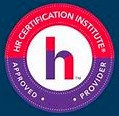OSHA Recordkeeping: How to Resolve Common Recordkeeping Errors, and Misinterpretations of Recordable Cases
15-January-2025 :01:00 PM EST Duration : 90 Minutes

This course, has been approved for 1.5 HR (General) recertification credit hours toward aPHR™, PHR®, PHRca®, SPHR®, GPHR®, PHRi™ and SPHRi™ recertification through HR Certification Institute® (HRCI®).
Irwin Dobrushin, OSHA
Irwin Dobrushin has over 45 years of experience in the Environmental, Health, and Safety Profession. Mr. Dobrushin began his career as an OSHA Compliance Officer. Throughout his career, he has supported the development of comprehensive environmental, health, and safety programs and services Read more
OSHA injury and illness recordkeeping remains constant source of questions and inconsistencies to those responsible for this task. Whether it relates to what constitutes OSHA recordability, is it a lost or restricted work day cases, what is medical treatment. These issues persist to 14 years after the effective date of January 1, 2002. Over the years OSHA has issued numerous interpretations, provide guidance and yet the confusion and recordkeeping errors continue to exist.
We must remember that when OSHA shows up at your door to inspect your site as a result of an employee complaint, special emphasis program, fatality, multiple hospitalization etc. the one constant will be that the OSHA Compliance Officer will look at and review your OSHA logs and associated documentation for the current year as well as up to 5 years prior. The importance of recordkeeping is ever getting more important, and the need for accuracy is of prime importance.
In this webinar, we will help you understand the OSHA interpretations, how to evaluate and make the correct decisions, and or review your logs to ensure their accuracy and make the necessary corrections before OSHA responds via citations.
Course Objective:
Those responsible for maintaining filling out and recording injuries and illnesses are often confused by what should and should not be included in the OSHA recordkeeping forms. Over-reporting injuries and illnesses can be as serious as under-reporting injuries and illnesses, and can even lead to uncomfortable OSHA inquiries or even inspections. It is also difficult to know how to accurately account for time lost due to injuries and illnesses, especially in the case of a part-time work force. This webinar will help clarify what should be reported as an injury or illness, as well as how to account correctly for lost work time.
Course Outline:
• What does OSHA mean by “work-related”?
• Reporting of temporary workers, and what criteria is relevant for determination of who is a temporary worker versus an independent contractor.
• Employee does not have to be engaged in work activities.
• Presumption of geography
• Employee fault does not matter.
• Employee waited too long to report.
• No one witnessed the accident.
• “This could have happened anywhere.”
• OTC medications versus Prescription
• Impact of failed drug tests after an injury.
• What does OSHA mean by “significant aggravation”?
• What happens if two doctors disagree about the need for treatment?
• How OSHA interprets “restricted work.”
• The rules for recording hearing loss cases.
What You Get:
• Training Materials
• Live Q&A Session with our Expert
• Participation Certificate
• Access to Signup Community (Optional)
• Reward Points
Who Will Benefit:
• Safety personnel
• Occupational Health Personnel
• Human Resources Administrators
• Supervisors
• Managers
• Small Business Owners
Please reach us at 1-888-844-8963 for any further assistance or if you wish to register

